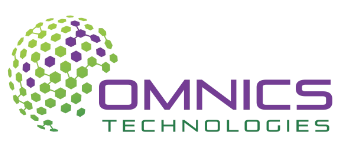AI Impact on Healthcare: Enhancing Diagnoses and Treatments
The integration of Artificial Intelligence (AI) in healthcare marks a turning point in how we diagnose and treat illnesses. No longer just a science fiction technology, AI has powerfully initiated the fundamental transformation of healthcare. Both doctors and patients benefit from more precise diagnoses, personalized treatment plans, and improved healthcare services, revolutionizing medical processes.
Improving Diagnostic Accuracy with AI
Perhaps the greatest benefit of AI for healthcare is the increase in the accuracy of medical diagnoses. AI algorithms trained on extensive datasets can recognize patterns that are invisible to the human eye. For example, AI systems in radiology can analyze X-rays, CT scans, and MRI images with a precision that human radiologists, even with the highest competence and experience, cannot match. This ability enables the detection of diseases like cancer in earlier stages, significantly improving treatment chances.
Personalized Treatment Plans Thanks to AI
Another significant contribution of AI to healthcare is the personalization of treatment plans. AI can deeply analyze patient data—from genetic information to lifestyle habits—and develop tailored treatment strategies. These individualized approaches are particularly crucial in areas such as oncology and the treatment of chronic diseases, where standard treatments often reach their limits.
Increased Efficiency and Cost Reduction
Lastly, the implementation of AI in healthcare leads to increased efficiency and cost reductions. AI systems can handle administrative tasks such as appointment scheduling, patient admission, and data management. This reduces the workload of healthcare personnel. Additionally, AI can predict hospital stays and assist in resource management, making healthcare facilities more efficient.
Challenges and Ethical Considerations
Despite the numerous benefits of AI in healthcare, there are also challenges and ethical concerns. Questions about data privacy, the security of patient information, and the potential misuse of AI are central issues. Particularly intriguing is the discussion surrounding responsibility in case of misdiagnoses and the role humans should continue to play in decision-making.
Conclusion
AI in healthcare is no longer a concept of the future but is actively changing the present. This revolutionary technology offers tremendous opportunities to improve the quality and efficiency of healthcare delivery. However, it also raises ethical questions and presents new challenges. Undoubtedly, the continuous development and integration of AI into medical processes will increasingly shape our healthcare system in the years to come.


 Photo by Lautaro Andreani on Unsplash
Photo by Lautaro Andreani on Unsplash